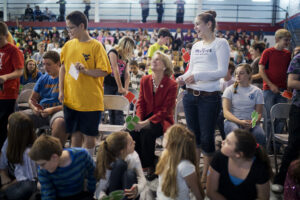
U.S. Sen. Shelley Moore Capito has earned our praise before for her efforts on many fronts.
A staunch supporter of conservative principles but with a pragmatic touch, Capito has played a key role in the development of practices we believe make the federal government better for the people — especially the people of West Virginia.
She has been a huge supporter of the coal mining industry, which is so critical to West Virginia’s economy, but also understands that new energy sources must be further developed.
She believes adequate government regulation should be in place to safeguard people, but that too much regulation strangles businesses’ ability to expand and hire more people.
She has advocated for increased broadband availability to her native Mountain State as well as been a proponent of increased science, technology, engineering and mathematics (STEM) programs, especially for girls.
She also has played a role in the development of regulations to better police financial institutions, safeguarding the country’s fiscal standing as well as protecting individuals from unscrupulous practices.
All of these actions are vitally important to keep the nation and West Virginia moving forward.
But today, we applaud Capito for a program that is much nearer and dearer to her heart, as well as ours.
As the state’s first female senator, Capito has blazed a trail for others to follow.
And while she obviously could allow her actions to be her lone effort to promote the importance of females rising to leadership roles, instead she has embraced the opportunity to advocate for increased female participation.
On Monday, she stopped by Norwood Elementary School and talked to about two-dozen fifth grade students as part of her “West Virginia Girls Rise Up” program.
She explained to the girls that while she now is comfortable talking to others — “It’s my job …” — that hasn’t always been the case.